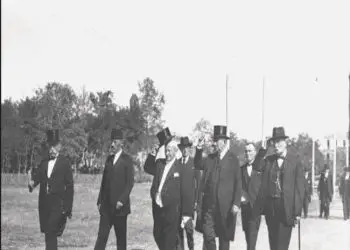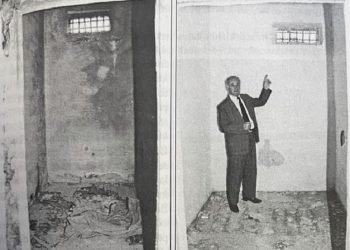By Idriz Lamaj
Part ten
From the works of the apostles of ethnic Albania
Xhafer Deva
In light of his own letters and other diaspora revelations
Preface
Memorie.al / Maybe like many others, I often browse letters with my friends and associates, who are no longer in this life. Browsing through them, for a moment unfolds memories that it seems to me that some of them can serve our history. Then, I return to the awareness of the current difficult situation in the ethnic homeland, caused by the quadruple of Albanian politics, I say to myself: “What can my memories of others or the letters of the people of dead? ”
Without being the ominous instigator of pessimism, thinking as always of a better future, I return to my obligations to my friends, and as an icy observer of time, without any claim of historical service, when I am given the opportunity of publication, write what I have in mind, always based on their writings and letters. This principle is also followed in this book about Xhafer Deva. I knew Xhafer Deva in person; we exchanged visits and had a strong correspondence.
I spent days off at his house and inherited all of Xhafer Deva’s correspondence with Rexhep Krasniqi, his closest friend, for more than 40 years. After many years, I talked on the phone with Mrs. Deva’s daughter and son-in-law. In the conversation going on, taking advantage of the old friendship, I asked about his letters and they informed me that it was all Qefali Hamdia, a friend of their family.
In June of last year (2001) I went to Kenosha, Wisconsin, a guest of Qefali Hamdia, to look at Xhafer Deva’s correspondence, which Mrs. Deva sent her years ago, when she, due to her advanced age, was closed his house to go to the house of his 5th daughter and son-in-law, Mrs. Burgl Dagmar and Rev. Dennis Logie.
After reading the bulk of the letters, in the languages I knew, I took with me more than a thousand pages of his correspondence, covering a period of over 30 years, 1945 – 1978. Xhafer Deva spoke and wrote seven – eight languages. His correspondence is: Albanian, English, German, Italian, French, Turkish and Serbian. Xhafer Deva’s letters and writings, with the exception of those in Old Turkish and Serbian in Cyrillic, are mostly typewritten, well-kept, and alphabetically arranged, with the persons he dealt with.
That includes his family letters. He carefully kept a copy of every letter he sent and every letter he received. Mrs. Oswalda Deva, daughter Burgl, son-in-law Dennis Logie and Mr. Qefali Hamdia with family, expressed his heartfelt thanks for the trust they gave me. With special gratitude I recall here the help given to me by my brothers – Captain Nue Gjomarkaj and Nikoll Gjomarkaj, in the preparation of one of the most important chapters of this book.
Kapidan Nou, in addition to making available the subject on Xhafer Deva’s relations with the ‘Independent National Bloc’ and sending paratroopers to Albania and Kosovo, reviewed with me each document of that period, and we formulated the text in the form of a conversation; while Nicholas, deciphered the letters, transcribed and translated from Italian, the unpublished materials to date, which were published in this chapter.
Continues from the last number
Xhafer Deva’s life and activity in exile
– Kosovo in the time of ethnic Albania –
Xhafer Deva in the light of his own letters
Xhafer Deva’s relations with the ‘Independent National Bloc’ and their parachute missions in Albania and Kosovo
Enigma Deva, his non-appearance in public, was questioned by other Kosovars, who were not informed of what he was doing behind the scenes of the war preparations. His reserved nature for such enterprises had caused a reaction in the press of the ‘Kosovo Group’ in Syria, led by Xhelal Mitrovica. Deva also in correspondence during those years, with the exception of Dr. Krasniqi, is reserved.
He often wrote to him and let him know that he had put something on the battlefield, but kept telling him: “I keep these to myself”, “see you soon”, “we will talk orally”, etc. ‘The group Kosovar ‘with Deva at the helm, during the first years of his efforts to help the cause of Kosovo, suffered a bitter experience with the political parties of Albania in 1913. Since the beginning of 1949 and with the creation of the National Committee “Free Albania” (August 1949), with the exception of the ‘Independent National Bloc’ party, the other parties and the Committee did not want in any way for the ‘Kosovo Group’ to join the national activity, as a movement of special political.
They made various attempts to recruit Kosovars as individuals within their own parties and claimed that the Kosovo issue would be better defended, as the political circumstances of the time did not prefer an interaction with particular irredentist movements and that Kosovo in Western circles was viewed as an internal problem of Yugoslavia, with which they had normal relations. Deva and the ‘Kosovar Group’ categorically opposed this idea. As an unwelcome figure in English politics, Deva had agreed to withdraw from the political scene on her own, but insisted that the ‘Kosovo Group’, or the Kosovo issue, be represented on the Committee as a separate political entity.
Strong political frictions, especially with the ‘National Ball’, had resulted in the reaction through a letter from Dr. Rexhep Krasniqi, addressed to Mit’hat Frashëri, who after the ‘Kosovo Group’ had stated that he personally represented Kosovo:
- Mit’hat Bej Frashëri.
Honest Lord, for the first time in my life I take permission to write you a letter. Alas, with a few brief exceptions, I did not have the honor of being in personal contact with you, to form a clear idea of your opinion on many points of our national life important for every Albanian, is also known to me.
I am even more familiar with your high work in the patriotic, intellectual, political field and especially your valuable contribution to the political literature, in terms of the idea of an ethnic Albania, at a time when the voice of the Albanian people, for lack of intellectual power was rarely felt. It is known that respect, honor, but also gratitude to a person with such a well-deserved past, have always been and still are for me at the highest level. I do not address this letter as a man of political career. The issues of political parties in the form and flows as they are in use in our country, no matter how necessary and important, have not attracted me and therefore I have not even felt the desire to interfere in them.
My field of work has not been closely connected with my profession and it focused on the special service, in the field of school education. So let each one in his own way, in his own way, and in his own strength, follow the exaltation and the good of the homeland on an honest basis. In this sense, look, no one can say that his work and deed is more necessary than the other. The needs and circumstances of the time brought me to leave my usual job and jump into some field of active action regarding Kosovo, doubly enslaved by the Slavs and the communists.
Apparently a heavy name stands above us young Albanians; the people with sacrifices give us the opportunities of education for useful professions of the life of the Albanian society, and we after a short way, desert and jump, at first we feel for the common good, in the waves of the unlearned political life, t ‘often pours our powers on things that have nothing to do with the beautiful idealistic intentions at their starting point.
Let’s get to the issue for which I was forced to write this letter. From different sides, but officially unverifiable, we have received the news that your Lord and persons of your circle, have expressed the opinion to exclude the ‘Kosovo Group’ from the ranks of an eventual cooperation of Albanian groups and parties in exile and that, in a In such a case, ‘Balli Kombëtar’ under your leadership ‘has the right to represent Kosovo as well.
Regarding the first point, that issue can be discussed and depends on the will, the degree of understanding of the importance of the Kosovo problem for the future of Albania, the sincerity of the programs and principles announced so far and the true love of these groups and of Albanian political personalities in exile for Kosovo.
So, if these political currents start from a narrow point of view of their interests, they do not see the need to rely on the unanimous will of the Kosovo Albanians and to demonstrate to the outside public the symbolic union of all Albanians, with their legal representation in a compact unit, but try to avoid this solution in various anti-natural and harmful ways, it is ultimately their job.
Kosovo will try, as always, to find the way of salvation, of unification with the Albania of 1913, not only in the armed struggle, but also in the field of political activity, with its powers and people prepared by time. Absolutely inappropriate and in many ways harmful, not to say dangerous, is the second saying. First of all, allow us a question: on what does the ‘Balli Kombëtar’ led by you base this expression? In any historical heritage, in any merit of the war we fought on the land of Kosovo, in a legal mandate of the people of Kosovo or, in how many Kosovars in exile, whose names offend Kosovo, or others gathered here and there with the way we are not explaining here longer, who themselves do not know who they are and what they want?
It would be an incomprehensible humiliation and at the same time a serious insult to one million Kosovars and their political organization with an excellent historical legacy of the fight for freedom and blood shed almost a century ago, to be represented by political parties or non-political persons. to get out of their circle, dough and war, no matter how meritorious these powers are for the general Albanian cause. This consequence is clear and objective and represents a fundamental principle for every Kosovar who thinks rightly and historically. But also for another reason, very important, the representation of Kosovo by any political organization of Albania of 1913 cannot be allowed.
If the ‘Balli Kombëtar’ led by you thinks it has the right to represent Kosovo, the same can be said by other Albanian political parties. And the conclusion would be a great loss for the cause of Kosovo, that in this way, the Kosovar powers would be dispersed and, instead of acting together for a sacred purpose, the salvation of their country became the apple of the endless quarrels of the partisan politics of 1913 Albania. We draw this logical deduction from the history of the last 30 years. Our first, to flee from captive Kosovo, thought of creating in Albania an ideal platform for the salvation of Kosovo, and so, inadvertently, they plunged into the political turmoil of this Albania and one after the other, starting with Bajram Curri and ending to Hasan Prishtina, they became their victims, while the issue of Kosovo, consequently, was naturally pushed behind the scenes.
We young Kosovars have learned a lot from this bitter story and we do not want to repeat the mistakes we made once. In this sense, to rely on the desire of many Kosovars in exile, expressed through letters, the political organization of Kosovo, the ‘Kosovo Group’, came out with the will of all the people of Kosovo, from the Presidency of the Central Committee of The ‘Second League of Prizren’, was addressed a year ago with a call to all Albanian political currents and personalities in exile, of course to you, which underlined his neutral, loyal and friendly attitude towards all political forces in Albania of 1913 and the desire for sincere cooperation.
How could it have happened and from any circumstances of a political nature to say the representation of Kosovo by the Balli Kombëtar led by you, we want in the common good of the Albanian issue, that this hasty opinion be reconsidered and resolved in a way desirable, to eliminate once and for all the black shadows, which threaten and disturb the relations between Kosovo and the ‘Balli’ led by you.
With great honors, Rexhep Krasniqi, Damascus, June 29, 1949.
After this reaction, Mit’hat Frashëri writes a short letter to Mr. Krasniqi, in which he asks for cooperation as an individual and begs him to understand the international political situation. Apparently in the meantime, Rexhep Mitrovica had intervened, who sided with ‘Balli’ and Mit’hat Frashëri. Meanwhile, Xhafer Deva had made an agreement with Mr. Sait Kryeziu, who was a member of the National Committee “Free Albania”, elected by the British In several letters, Mr. Kryeziu assures Deva that in the Committee he would act as a Kosovar and defend the cause of Kosovo, in any political circumstances.
“Xhafer Deva on the move”. 22 years ago, I used in a writing of mine this title in the work we published with Dr. Rexhep Krasniqi, ing. Ago Agajn and Prof. Zef Nekajn, for Xhafer Deva. The title of my paper started from the point of view that no other Albanian immigration politician has been attacked like Deva by the press of Tirana and Belgrade.
The press in question, in three different periods: 1949 – 1953, 1956 and 1962, started the campaign against Xhafer Deva, with the same title: “Xhafer Deva on the move.” The question was always asked: such a way”? In this book, the reader will see for himself why the regimes of Belgrade and Tirana were so upset when Xhafer Deva was set in motion. Coordinated or not, it does not matter, both regimes attacked Deva with the same accusations and the same language.
They knew very well who Xhafer Deva was and what he could do when set in motion. They also knew all his skills, and were convinced that Xhafer Deva spared nothing against them and did not make much difference between the two sides. They were aware that Deva, like rarely anyone else, could infiltrate the most serious Western circles, to the detriment of their ruling interests. The propaganda of the Albanian and Yugoslav communists against Deva was done in a refined way. Xhafer Deva presented himself as: criminal, Nazi, traitor, bloodthirsty and the simple reader created the impression that this was an ignorant man, a murderer and without a school education, etc.
They were careful not to reflect in their propaganda Deva’s abilities as an extraordinary man of organization and action. They had an advantage in propaganda. For the generation or persons who knew Deva, they did not have to be afraid; they had their mouths shut, while for the younger generations, the appearance of Deva as a gogol, only reinforced the hatred against him and closed the appearance of the Kosovo issue as a matter for national unity, etc. Hatred against Kosovo and Kosovars was sown in both Belgrade and Tirana. Memorie.al




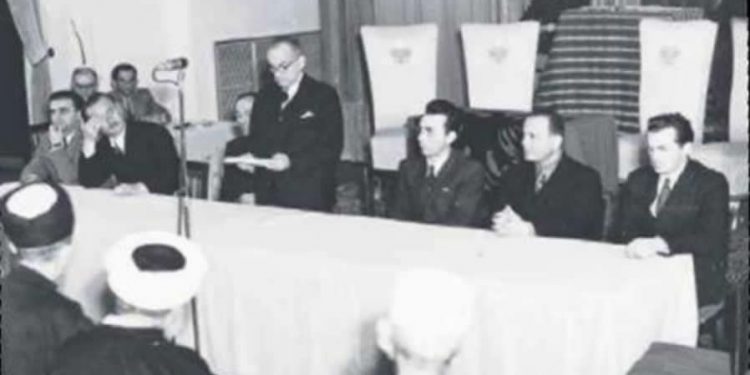
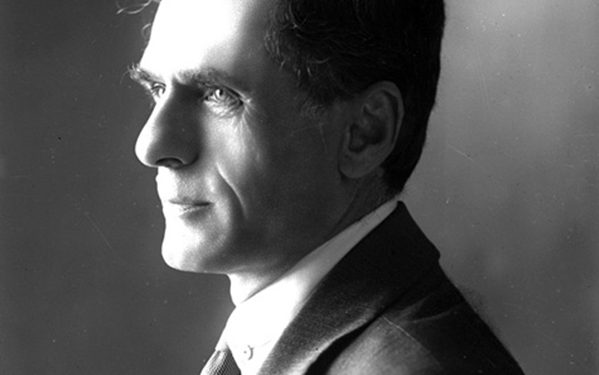
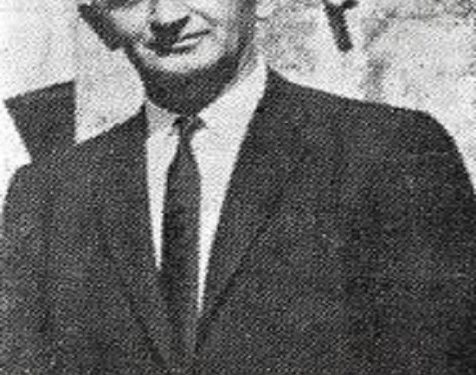
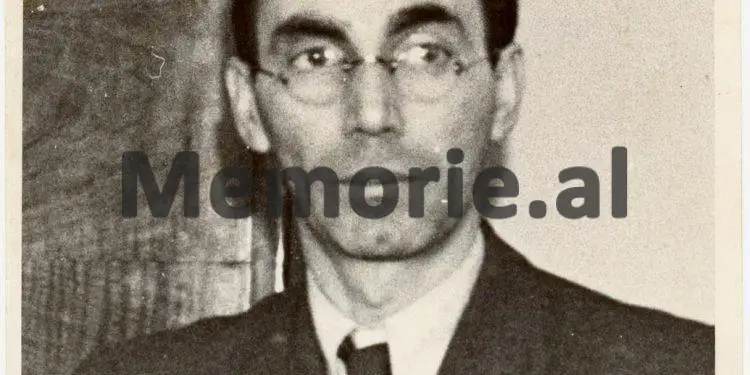
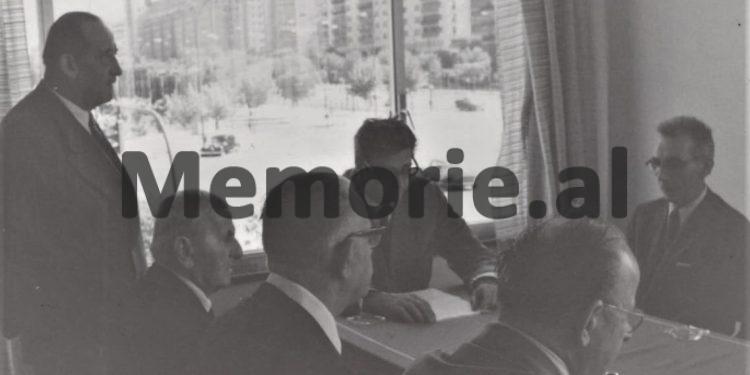
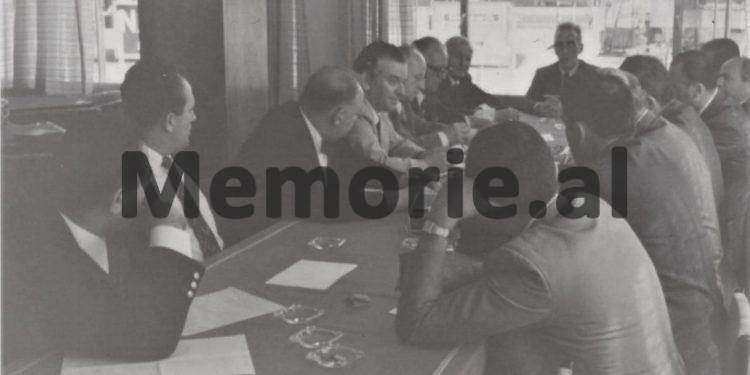
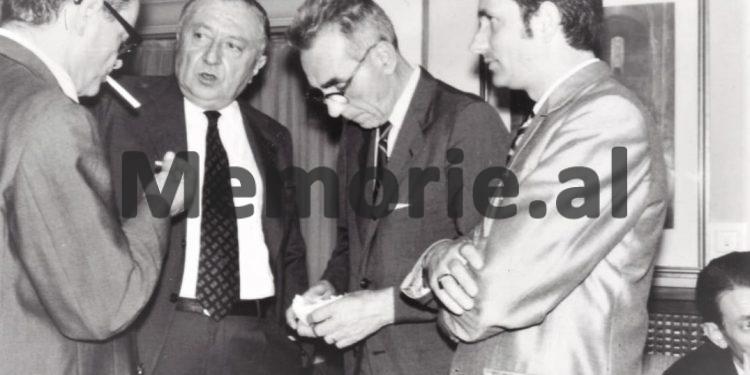
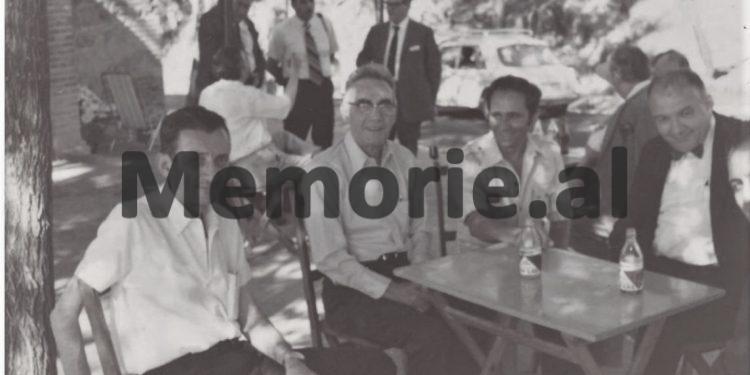
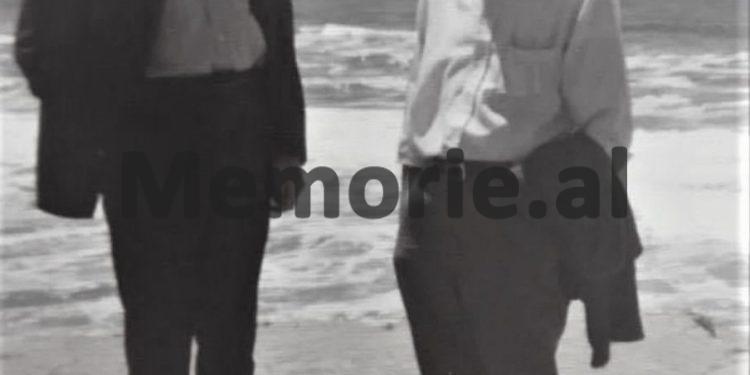
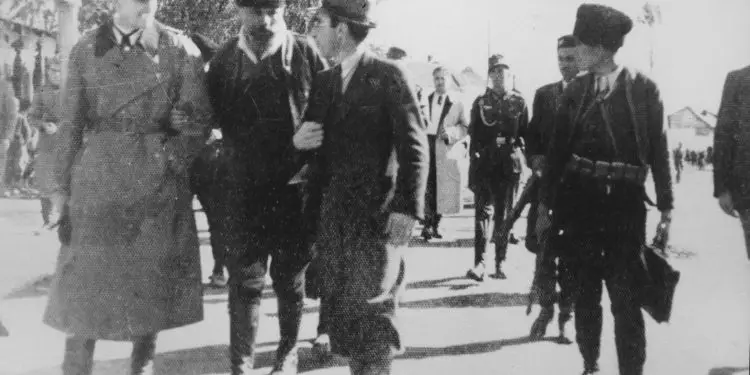
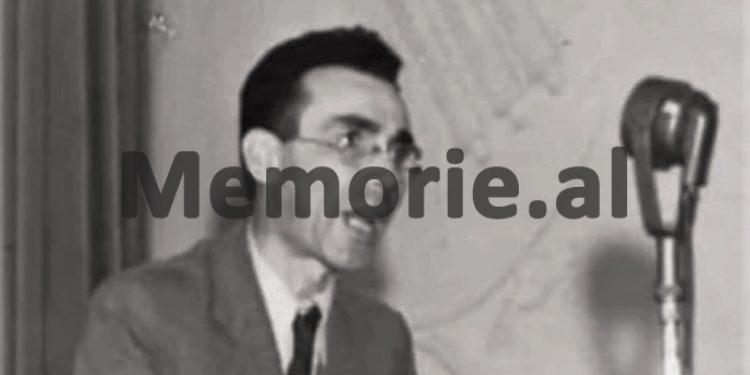
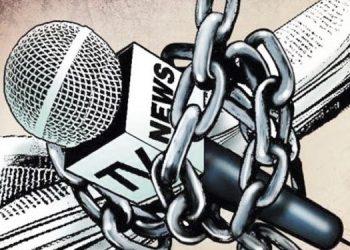

![“After the ’90s, when I was Chief of Personnel at the Berat Police Station, my colleague I.S. told me how they had once eavesdropped on me at the Malinati spring, where I had said about Enver [Hoxha]…”/ The testimony of the former political prisoner.](https://memorie.al/wp-content/uploads/2024/09/admin-ajax-4-350x250.jpg)
